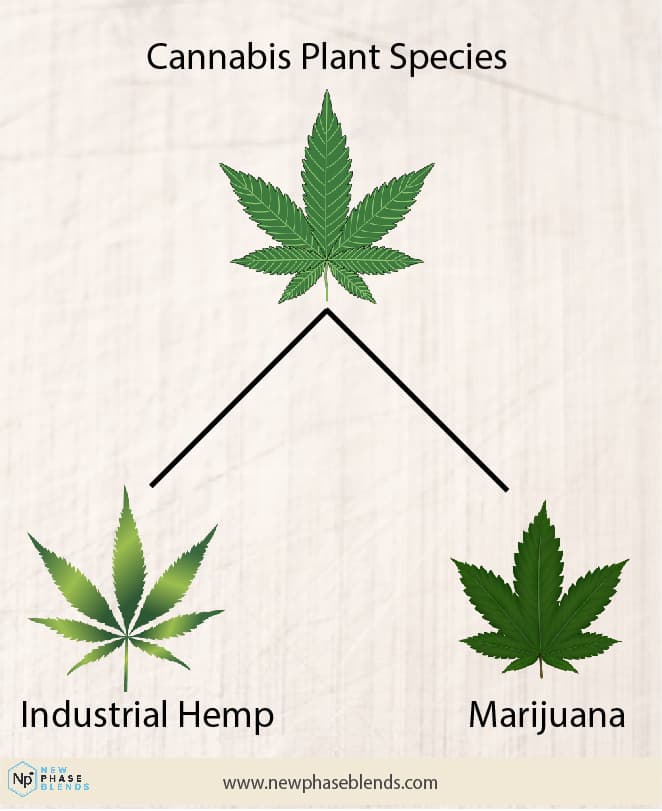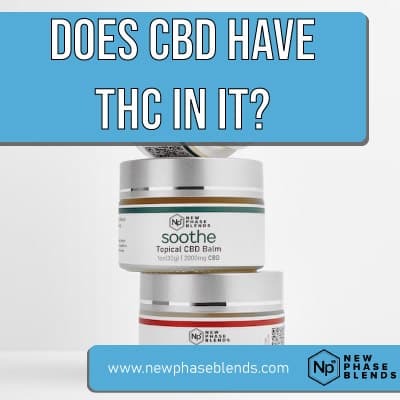If you’ve ever considered trying CBD products but worried about potential THC content, you’re not alone. The question “does CBD have THC in it?” is one of the most common concerns among potential users. Unfortunately, the answer isn’t as straightforward as a simple yes or no—it depends on which type of CBD product you choose. In this comprehensive guide, we’ll clear up the confusion surrounding CBD and THC content, explain the differences between broad spectrum vs full spectrum CBD, and outline the legal guidelines for CBD with THC. By the end of this article, you’ll have the knowledge to confidently select CBD products that align with your specific needs and comfort level regarding THC content.
Understanding CBD and THC: The Basics
Before diving into whether CBD contains THC, it’s important to understand what these compounds actually are. Both cannabidiol (CBD) and tetrahydrocannabinol (THC) are natural compounds found in cannabis plants, known as cannabinoids. While they come from the same plant family, they interact with your body differently and produce distinct effects.
CBD is prized for its potential wellness benefits without intoxicating effects. THC, on the other hand, is the primary psychoactive component in cannabis that produces the “high” sensation associated with marijuana. This fundamental difference is crucial to understanding the various CBD products available on the market today.
The Cannabis Plant Distinction: Hemp vs. Marijuana
The source of CBD significantly impacts whether it contains THC:

Hemp plants are legally defined as cannabis plants containing 0.3% THC or less (on a dry weight basis). Most commercial CBD products are derived from hemp precisely because of this low THC content.
Marijuana plants typically contain much higher levels of THC, ranging from 5-30%. CBD products derived from marijuana plants will naturally contain more THC unless specifically processed to remove it.
This distinction is not just botanical—it’s legal. The 2018 Farm Bill federally legalized hemp cultivation and hemp-derived products in the United States, creating the foundation for today’s CBD market.
Does CBD Actually Contain THC?
Whether CBD contains THC depends entirely on which type of CBD product you’re using. There are three main categories of CBD products, each with different THC content:
Full Spectrum CBD: Yes, It Contains THC
Full spectrum CBD products contain all the naturally occurring compounds found in the hemp plant, including THC (up to the legal limit of 0.3%). These products leverage what’s known as the “entourage effect”—the theory that cannabinoids work better together than in isolation.
The amounts of THC in these products are minimal and unlikely to cause intoxication, but they may potentially trigger a positive result on sensitive drug tests. For many users, the enhanced effectiveness outweighs this consideration, particularly for those seeking maximum therapeutic potential.
Broad Spectrum CBD: No Detectable THC
Broad spectrum products offer a middle ground. They contain multiple cannabinoids, terpenes, and other beneficial compounds from the hemp plant, but the THC has been specifically removed. This option allows users to experience some of the entourage effect benefits without THC exposure.
Broad spectrum is particularly popular among those who want comprehensive plant benefits but have concerns about THC, such as athletes subject to drug testing or individuals who are especially sensitive to THC.
CBD Isolate: Absolutely No THC
CBD isolate is the purest form of CBD, containing only cannabidiol with all other compounds (including THC) completely removed. These products typically come as powders or crystals that can be added to foods, beverages, or topicals.
Isolate is ideal for those who want to avoid THC entirely, need precise dosing of CBD only, or have sensitivity to other cannabis compounds. However, without other cannabinoids present, they don’t provide the entourage effect.
Broad Spectrum vs Full Spectrum CBD: Making the Right Choice
When deciding between broad spectrum and full spectrum CBD, consider these factors:
Effectiveness profile: Full spectrum products may offer enhanced effectiveness for certain conditions due to the entourage effect that includes trace amounts of THC. Studies suggest this synergistic interaction may provide more substantial benefits, particularly for pain, inflammation, and anxiety.
Drug testing concerns: If you’re subject to workplace drug testing or operate machinery, broad spectrum products eliminate the risk of THC appearing on screening tests while still providing multiple cannabinoid benefits.
Personal sensitivity: Some individuals are particularly sensitive to even trace amounts of THC, experiencing mild side effects. Broad spectrum options allow these users to avoid THC while still benefiting from other cannabis compounds.
How to Identify What You’re Getting
Product labels should clearly indicate whether you’re purchasing full spectrum, broad spectrum, or isolate CBD. However, terminology isn’t always consistent across brands. Here’s what to look for:
- Check for a Certificate of Analysis (COA) from third-party testing, which will show cannabinoid content, including THC levels.
- Look for specific language like “THC-free” on broad spectrum products.
- Reputable companies will provide detailed information about their extraction methods and exactly which cannabinoids are present in their products.
Legal Guidelines for CBD with THC
The legal landscape for CBD products containing THC can be complex:
Federal level: The 2018 Farm Bill legalized hemp-derived CBD products containing no more than 0.3% THC on a dry weight basis. This created a federal framework permitting most CBD products you’ll find on the market today.
State variations: Individual states may have more restrictive rules regarding CBD and THC content. Some states have explicitly prohibited certain CBD products despite federal legality, while others have expanded access beyond federal guidelines.
Before purchasing or traveling with CBD products containing THC, research your specific state’s laws. This is particularly important when crossing state lines.











